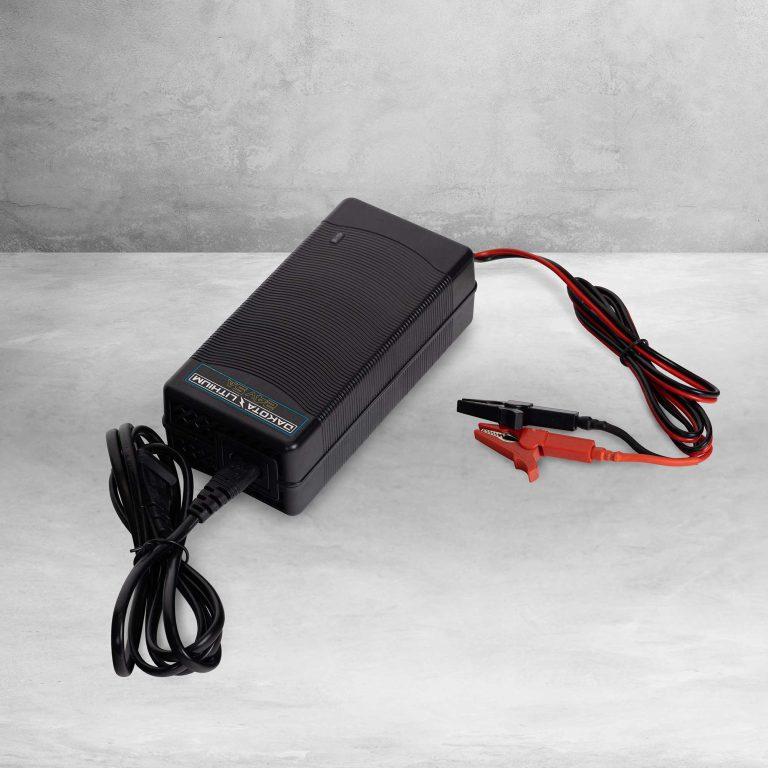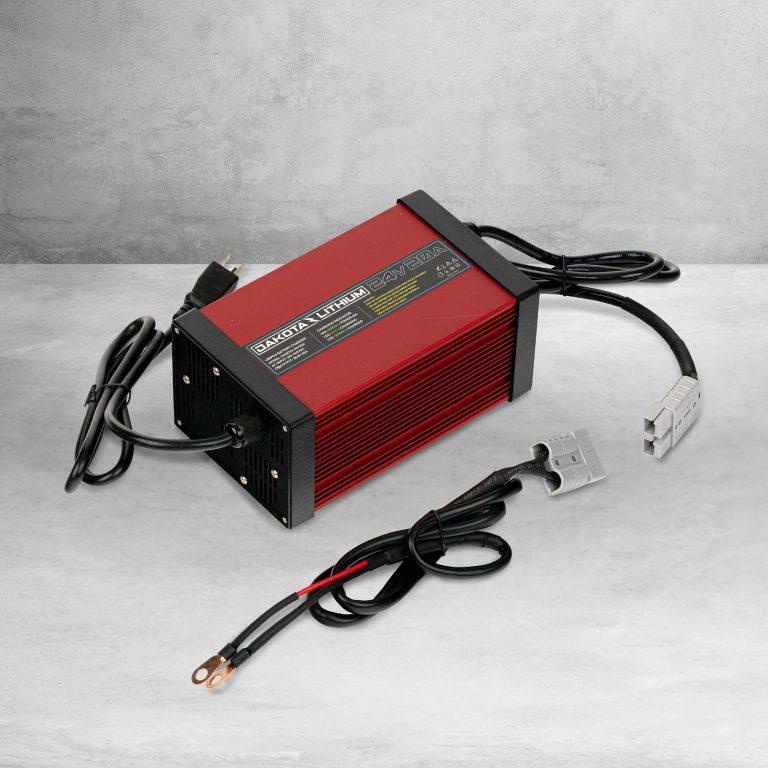In today's world of electric-powered vehicles, from golf carts and motorcycles to power tools and even children's ride-on toys, 24-volt lithium batteries are becoming increasingly popular. These batteries offer a significant advantage over traditional lead-acid batteries: superior performance and lifespan. But to keep your lithium battery functioning at its best, you need the right 24-volt lithium battery charger.
This comprehensive guide dives deep into the world of 24-volt lithium battery chargers, equipping you with the knowledge to choose the perfect charger for your specific needs. We'll explore:
- The benefits of lithium batteries for various applications
- Key features and considerations when selecting a lithium 24v battery charger
- Compatibility with different battery types (LiFePO4, etc.)
- Safety precautions and best practices for charging lithium batteries
- Top brands and models of 24-volt lithium battery chargers, including Dakota Lithium Batteries
Why Choose Lithium Batteries?
Lithium batteries offer numerous advantages over traditional lead-acid batteries, making them a compelling choice for various applications:
Longer lifespan: Lithium batteries boast significantly longer lifespans, lasting up to 3-5 times longer than lead-acid batteries.
Lighter weight: Lithium batteries are considerably lighter than their lead-acid counterparts, offering weight savings that can improve performance and efficiency in vehicles.
Faster charging: Lithium batteries can be charged much faster than lead-acid batteries, often reaching a full charge in a fraction of the time.
Deeper discharge: Lithium batteries can be discharged to a greater depth without damaging the battery, allowing for more consistent power delivery.
Maintenance-free: Unlike lead-acid batteries, lithium batteries require minimal maintenance, eliminating the need for periodic topping up of electrolytes.
Choosing the Right Lithium 24 Volt Battery Charger
Selecting the right 24-volt lithium battery charger is crucial for optimizing the performance and lifespan of your battery. Here are some key factors to consider:
Battery type: Ensure the charger is compatible with your specific lithium battery type, such as LiFePO4 (Lithium Iron Phosphate). Different battery chemistries require specific charging profiles to avoid damage.
Charging current: The charging current (measured in amps) determines how quickly your battery will charge. Higher current chargers offer faster charging times, but they may also be more expensive. Choose a current that is appropriate for your battery size and needs.
Charging voltage: The charging voltage should precisely match the voltage of your battery (24 volts in this case). Overcharging can damage the battery, while undercharging can reduce its capacity.
Automatic features: Look for chargers with automatic shutoff and safety features that prevent overcharging, overheating, and other potential hazards.
Portability and size: Consider the portability and size of the charger, especially if you plan to use it on the go.
Brand reputation and warranty: Choose a reputable brand that offers a reliable warranty on its chargers.
Compatibility with Lithium Battery Types

While this guide focuses on 24-volt lithium battery chargers, it's important to note that not all lithium batteries are created equal. Different lithium battery chemistries, such as LiFePO4, require specific charging profiles.
LiFePO4 Batteries: These are the most common type of lithium battery used in 24-volt applications. They offer excellent safety, stability, and long life. Ensure your charger is specifically designed for lifepo4 battery and adheres to the recommended charging voltage and current profile.
Safety Precautions and Best Practices
Always prioritize safety when handling and charging lithium batteries. Here are some essential practices to adhere to:
Read the charger's manual carefully: Familiarize yourself with the specific instructions and safety guidelines provided by the manufacturer.
Charge in a well-ventilated area: Avoid charging batteries in confined spaces or near flammable materials.
Monitor the battery temperature: Overheating can damage the battery. If the battery becomes excessively hot during charging, discontinue use immediately.
Never leave a charging battery unattended: It's crucial to monitor the charging process and disconnect the charger once the battery is fully charged.
Dispose of batteries responsibly: Do not throw lithium batteries in the trash. Instead, follow local regulations for safe disposal or recycling.


No comments yet